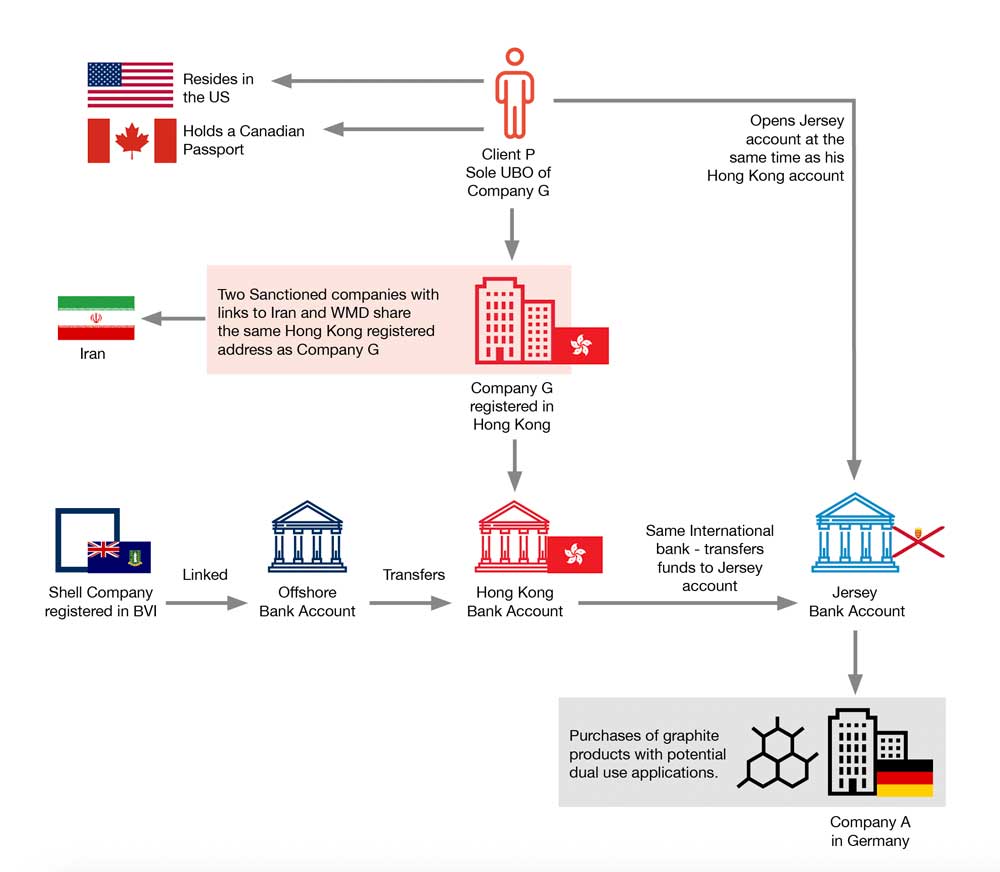Client P is a Canadian national, resident in the US. Their occupation is a Logistics Consultant, and they are the sole Ultimate Beneficial Owner (UBO) of Company G, a Hong Kong-registered company.
Client P also holds a business account for Company G at an International Bank in Hong Kong. In addition, he holds personal accounts with the same Jersey and US bank.
The international bank in Hong Kong notified their Jersey office that they were exiting the relationship with client P as they had formed financial crime concerns regarding the transactional activity recorded on Company G’s corporate account in Hong Kong. This activity was assessed to be consistent with red flags related to engagement with unspecified activity and higher-risk jurisdictions with identified Anti-Money Laundering (AML) weaknesses. This consisted of the receipt of funds from two logistics companies registered in the British Virgin Islands (BVI). These companies had no online presence and the activity involved the rapid movement of funds in and out of the account, with no economic rationale provided when requested.
The Jersey office conducted a review of the transactional activity recorded on Client P’s personal account. This revealed that all the accounts linked to Client P were opened within a few months of each other and that the Jersey account was primarily funded by Client P’s Hong Kong business account; however, in amongst the expected personal transactions, Client P had made a number of significant business linked payments to Company A, a leading global supplier of graphite products based in Germany.

PF refers to the provision of funds or resources to support the development, production, or acquisition of weapons of mass destruction (WMD), including nuclear, chemical, and biological weapons. This type of financing can occur through various means, such as legal or illegal financial transactions, support from state or non-state actors, and the exploitation of financial systems to disguise the true purpose of the funds.
Proliferation financing poses significant threats to global security, as it enables states or organisations to advance their capacities to develop harmful weaponry that can be used for aggression against other nations or in terrorist activities. To combat this threat, many countries and international organizations implement strict regulations and monitoring systems designed to prevent and disrupt the flow of funds intended for proliferation purposes. This includes measures such as enhanced due diligence by financial institutions and stricter compliance with anti-money laundering (AML) and counter-terrorism financing (CTF) policies.
We continually strive to enhance the quality of the products we produce, from our typologies to reports, Insight papers to training guides. However, we can only improve if you share your feedback with us about what you think about them. This is your chance to let us know and we appreciate it your feedback. Click the navy button below or scan the QR code.
Tell us what you think >.svg)